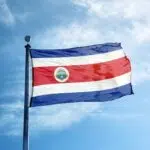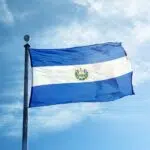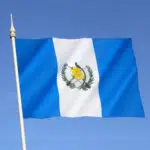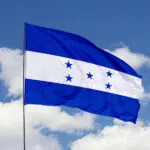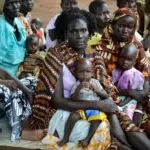National Africa Civility Day is a humanitarian holiday celebrated every year on September 15. The day is typically marked by award ceremonies that are organized to celebrate the work of humanitarians from all over the world. Since its inception, National Africa Civility Day has established the ideal environment for humanitarian organizations and other global authorities to convene and discuss strategies for intervening in and mitigating the worsening crisis in various societies across the globe. On the African continent, talks surrounding civility have become increasingly significant as a result of the thin line that exists between efforts to promote peace and efforts to improve humanitarian conditions.
History of National Africa Civility Day
It is great that we have a day to honor all those involved in humanitarian efforts for their role in bringing peace and reconciliation among warring factions. Even in the heart of war, humanitarian organizations have been known to have access to places where others cannot reach as they bring aid to those in need. We, therefore, cannot truly commemorate this day without making mention of Henri Dunant, a Swiss businessman, and social activist best known as the person who started formalized humanitarian aid.
In June 1859, after seeing how wounded soldiers were left to die after the Battle of Solferino, Dunant changed his plans and started a relief response. Dunant provided food, drink, and medical supplies to injured men from all sides, including the Austrian, Italian, and French armies. Solemnly recounting his experiences at the Battles of Solferino, Dunant’s memoir is an important foundational work for modern humanitarianism. His efforts to establish an everlasting rescue organization and International Humanitarian Law took off shortly after the publication of Dunant’s foundational book, which was in 1862.
To help wounded soldiers in war, the Geneva Society of Public Welfare established the International Committee for Aid to Wounded in Situations of War in 1863. In 1864, the Geneva Conventions signed an agreement to set rules for future wars. The goal was to take care of and protect the sick and injured during any battle. With increased media attention and celebrity sponsorship in the following decades, the treaty’s growing significance inspired large-scale government-led relief efforts in the wake of disasters all around the globe. To date, The International Committee of the Red Cross has been a protector of humanitarian law and one of the world’s biggest donors for almost a century.
National Africa Civility Day timeline
Henri Dunant publishes his wartime book, which becomes a foundational text for modern humanitarianism.
Various governments agree to create an international committee responsible for humanitarian aid during conflicts and war.
The first Geneva Convention sets limits and guidelines for the protection of civilians during wartime.
Large-scale relief efforts commence in response to disasters around the world.
A platform is created for humanitarian agencies to collaborate on similar projects.
The first global summit on humanitarian diplomacy is organized by the United Nations in Istanbul.
National Africa Civility Day FAQs
What was the first civilization in Africa?
Egypt was the first major civilization in Africa.
What was the biggest civilization in Africa?
It was the Songhai Empire, which grew fast under king Sonni Ali in the 1460s. By 1500, it had grown to be the biggest state in African history, stretching from Cameroon to the Maghreb.
How old is African civilization?
East Africa is where the first hominids, archaic humans, and anatomically modern humans (Homo sapiens) appeared between 300,000 and 250,000 years ago.
How to Observe National Africa Civility Day
Donate to African humanitarian campaigns
Make a donation to your favorite charity that supports African causes. It is always such a refreshing experience to be part of a worthy cause.
Explore the African content
Learn more about the cultures and customs of Africa by reading books, browsing the internet, or watching documentaries. You will be surprised at all the interesting things you will discover about this huge continent.
3. Throw a traditional party
Plan an African-themed party and invite your friends and family. Request them to come dressed in traditional clothes from various African countries.
5 Interesting Facts About Africa
Its the most centralized continent
Both the prime meridian (0 degrees longitude), and the equator (0 degrees latitude) cut across the African continent.
The world’s longest river is in Africa
The Nile River is the longest flowing river in the world and is the major water source for Egypt, Sudan, and South Sudan.
It’s home to the world’s tallest animal
Giraffes are native to the African continent and are the tallest creatures on earth.
It is home to the Sahara desert
The world’s largest desert runs through most of North Africa, from the Red Sea in the east and the Mediterranean in the north, to the Atlantic ocean in the west.
It has the most diverse wildlife selection
No other continent has as many mammalian and freshwater fish species as Africa does.
Why National Africa Civility Day is Important
The day fosters community growth
It celebrates and promotes kindness, respect, and understanding towards others. When people living together in an environment can rely on each other, it becomes easier to embark on positive projects.
It encourages unity
It helps to create a more positive and inclusive society for everyone. When people are approachable, it becomes easier to speak about problems and discover solutions.
It raises civil awareness
It helps to teach people the importance of being polite and courteous towards others. When people respect the views of others, raising funds for humanitarian projects becomes a much simpler task.
National Africa Civility Day dates
| Year | Date | Day |
|---|---|---|
| 2024 | September 15 | Sunday |
| 2025 | September 15 | Monday |
| 2026 | September 15 | Tuesday |
| 2027 | September 15 | Wednesday |
| 2028 | September 15 | Friday |






